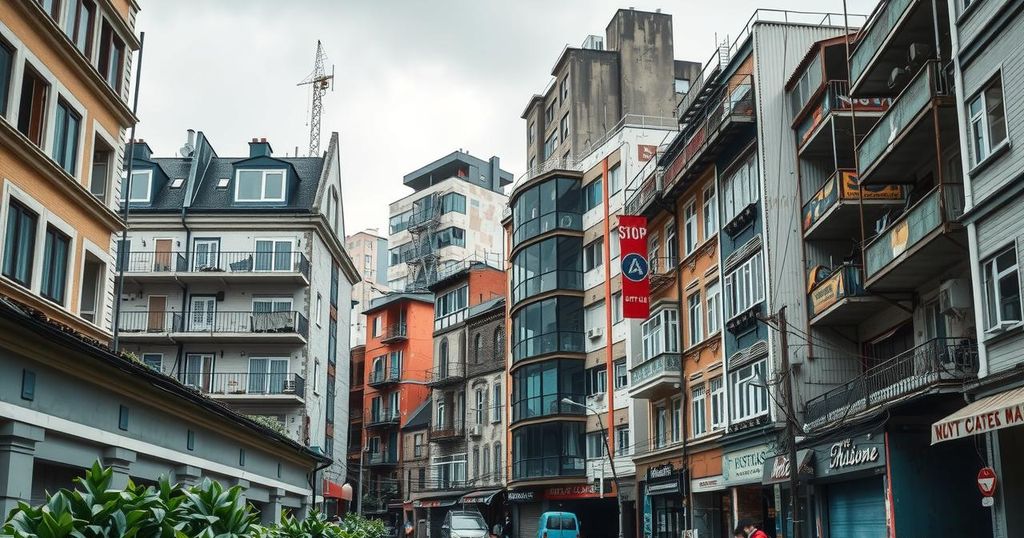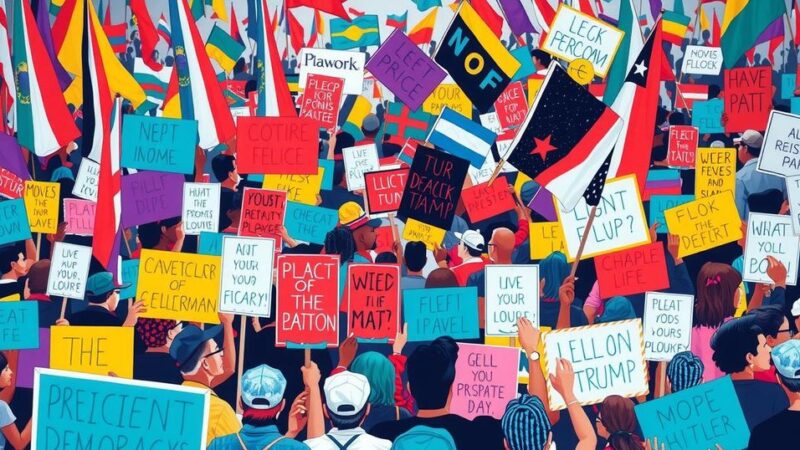Javier Milei’s presidency in Argentina brings radical reforms impacting the economy. While some sectors are hopeful, many citizens express concern over job losses and rising costs. Protests highlight a growing divide regarding the benefits of these changes. The future remains unclear, with Milei facing significant challenges ahead.
Argentina’s new president, Javier Milei, has swiftly enacted several radical changes that have ignited both excitement and discontent among its citizens. Since taking office, he has emphasized a new economic agenda, claiming to fight inflation and revive the economy. Nevertheless, the impact of these policies has varied; while some sectors celebrate newfound opportunities, many others express frustration as they feel left behind, highlighting a stark divide. With Milei at the helm, the nation grapples with major shifts that are reshaping everyday life for millions.
Many Argentinians are hopeful with Milei’s promises of reform. He seeks to dismantle trade restrictions and overhaul the country’s monetary policy, which are commonly viewed as necessary steps to restore economic stability. However, for numerous low-income families and those reliant on government subsidies, such changes have sparked concern about possible job losses and rising prices. As the government pursues aggressive austerity measures, the tension between economic theory and the reality faced by everyday people becomes all the more pronounced.
Critics argue that Milei’s approach is akin to playing with fire, as bold moves could potentially exacerbate social inequality. Protests have emerged in major cities, as citizens voice their discontent regarding job security and living costs. Street vendors and workers in industries like healthcare feel especially vulnerable; they fear that cutting programs may worsen their already precarious financial situations.
Meanwhile, some business leaders champion Milei’s drastic changes, hopeful that deregulation can attract foreign investments. They argue that a leaner government will invigorate entrepreneurship. However, others point out that until the trickle-down effect is realized, middle and lower-class citizens may suffer economic strain as their needs are not immediately addressed.
In a move to solidify support, Milei has attempted to engage more directly with his critics, hosting town halls and addressing grievances head-on. Nevertheless, the narrative around his presidency remains divided; some call him a revolutionary while others label him as reckless. The ultimate outcome of these measures and how they will affect the average Argentine citizen remains uncertain, with many still feeling anxious about the future.
As Milei’s administration moves further into uncharted territory, the road ahead is fraught with challenges. The specter of political instability looms large over the government, and the question of who benefits from these reforms continues to linger amid the daily conversations of those affected. For now, it remains clear that in Milei’s Argentina, not everyone is a winner.
Javier Milei’s presidency in Argentina is marked by radical economic reforms generating mixed reactions among the populace. While some hope for growth and opportunity, many citizens worry about losing jobs and rising costs. Milei’s attempts to engage directly with the discontent may not assuage fears of social inequality. The future remains uncertain, with significant challenges ahead for his administration and its effects on the everyday Argentine.
Original Source: gazette.com






